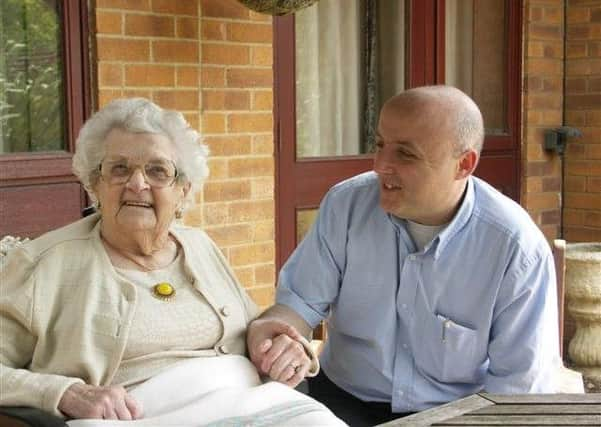Good intentions aren't enough when it comes to a personal care plan


Self-directed support (SDS) is intended to allow people to choose how their support is provided, and give them as much control as they want of their individual budget. It’s intended is to put more choice and control into the hands of people who access social care services. The next local government cycle will be tasked with embedding SDS as the Scottish Government’s ten-year national strategy enters its final phase. Within the new landscape of health and social care integration, councillors can shape the agenda to promote a more personalised support system.
The Social Care (Self-directed Support) (Scotland) Act 2013, the law that places a duty on local authorities to offer SDS options, is broadly welcomed for its drive to make sure people can have control over their support, choosing how it is arranged to meet their own requirements. An optimistic atmosphere surrounded SDS when the law came into force. Messages coming from the Scottish Government at the time signalled that it would bring transformational change to social care. Although direct payments already existed as a way for people to manage their own support, for example by employing Personal Assistants, SDS was intended to extend the principle of choice throughout social care more widely.
Advertisement
Hide AdAdvertisement
Hide AdThe Alliance has recently carried out national research with around 100 disabled people and people with long-term conditions who use SDS, and their unpaid carers. While we are still analysing the data, initial findings suggest that there are wide variations in implementation across Scotland and potentially serious gaps between national policy aims and local practice.


Rather than being transformational, our evidence suggests that so far SDS may only be beginning to nudge social care towards a more personalised approach. Scottish Government data from 2014-15 estimated that 20 per cent of all people who use social care in Scotland were accessing SDS. Our research suggests that it is often those who have the most knowledge, confidence and capacity who are able to do so and therefore have the most control over their support.
It has now been almost three years since the 2013 Act was implemented, and yet the slow progress is evident at a very human level. We asked people how long it took between being assessed for SDS and having their support in place, and a worrying majority – 51 per cent – stated that it had taken a year or longer. This has significant implications for people who require support to live independently; including, for example, young adults leaving school and having to rely on their parents, or older couples who must provide personal care for spouses with dementia.
One respondent told us: “That took another nine months before we got any further forward, and what they did was come back out and do another SDS review, this was our sixth one by this time.” Another said: “So I found the process very lengthy and we actually went to two councillors to try and speed up the process of getting an allocated social worker.”
Another concern is the way that SDS is being presented to people, which varies greatly between local authority areas. While some respondents reported having a positive relationship with social work departments, others noted poor levels of communication, including being given information that is counter to the SDS provisions, for example that SDS cannot be used for anything other than personal care; that having an SDS budget agreed does not equate to support being given; or that people must repay funding that had previously been agreed. The problems are further compounded by people not being kept informed about how and why the authorities have arrived at these decisions. This lack of transparency undermines the intention behind SDS to change the dynamic between individuals and local authorities.


The tone that councillors set, in explaining how their decisions will impact people who access social care, can have a positive effect on how SDS is implemented at the local level. Disabled people, people with longterm conditions and unpaid carers acknowledge the financial constraints within which local authorities operate, however, local and national decision-makers must ensure that human rights, choice and dignity remain paramount.
Ian Welsh, Chief Executive, Health and Social Care Alliance Scotland (the Alliance)